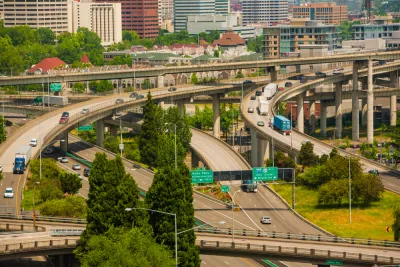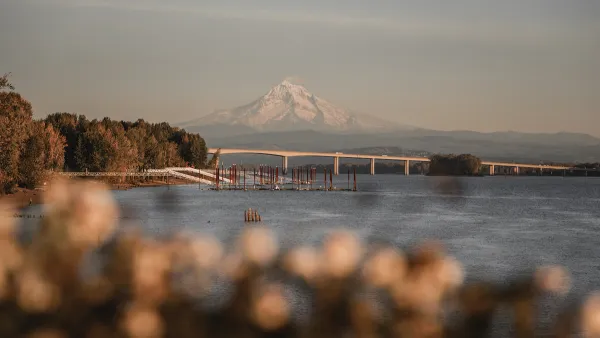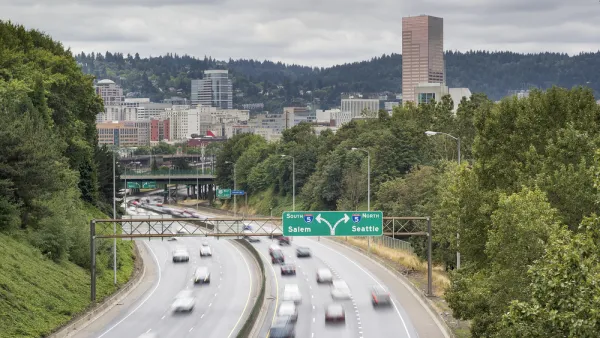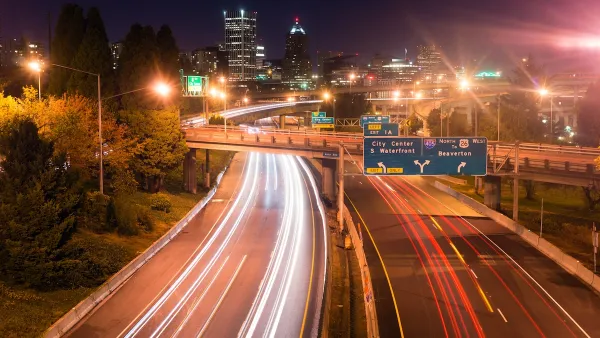The state’s plan to implement tolls to reduce congestion and promote alternate transportation modes is facing some backlash as critics argue the revenue shouldn’t fund road expansion projects.

Oregon’s plans to introduce tolls on many of the state’s freeways has drawn concern even from supporters of toll roads, who say that the potential costs could negatively impact low-income residents. While tolling can be a useful traffic management and emissions reduction tool, critics say the state’s department of transportation (ODOT) shouldn’t use toll revenue to fund road expansion projects, writes Jayati Ramakrishnan in Oregon Live.
While the actual costs of tolling are yet to be determined, economist Joe Cortright made his own calculation, which ODOT disputes. “Piecing together public records and disparate numbers ODOT has released over the last few years, Cortright concluded that tolls on either an I-5 or I-205 route could pile up to as much as $30 for a hypothetical round-trip commute between Wilsonville and Vancouver during peak hours — when tolling rates would be at their highest to discourage congestion.” However, the article also points out that low-income drivers are more likely to drive outside of peak commute hours.
ODOT officials argue that proposed road and bridge projects are necessary to maintain the safety of the state’s transportation infrastructure. The agency also plans to offer reduced prices for low-income drivers. To address the inherent inequity in supporting road expansion projects, two proposed state bills would require a percentage of toll revenue to go to public transit projects and task ODOT with developing a clear low-income tolling plan.
FULL STORY: Tolls are coming to Portland-area freeways, and even tolling fans worry they’ll stack up

Analysis: Cybertruck Fatality Rate Far Exceeds That of Ford Pinto
The Tesla Cybertruck was recalled seven times last year.

National Parks Layoffs Will Cause Communities to Lose Billions
Thousands of essential park workers were laid off this week, just before the busy spring break season.

Retro-silient?: America’s First “Eco-burb,” The Woodlands Turns 50
A master-planned community north of Houston offers lessons on green infrastructure and resilient design, but falls short of its founder’s lofty affordability and walkability goals.

Test News Post 1
This is a summary

Analysis: Cybertruck Fatality Rate Far Exceeds That of Ford Pinto
The Tesla Cybertruck was recalled seven times last year.

Test News Headline 46
Test for the image on the front page.
Urban Design for Planners 1: Software Tools
This six-course series explores essential urban design concepts using open source software and equips planners with the tools they need to participate fully in the urban design process.
Planning for Universal Design
Learn the tools for implementing Universal Design in planning regulations.
EMC Planning Group, Inc.
Planetizen
Planetizen
Mpact (formerly Rail~Volution)
Great Falls Development Authority, Inc.
HUDs Office of Policy Development and Research
NYU Wagner Graduate School of Public Service




























